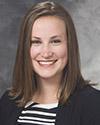Accepted for presentation at AAP 2016


Kathleen K. Miller, MD; Kristy L. Fitzpatrick, MD; Miguel Obregon MD; Diego Herrera MD; David Gaus, MD
Background: The majority of physicians in Ecuador are concentrated in Quito and Quayaqil, the two largest cities, leaving a paucity of providers in rural areas. Hospital Hesburgh in Santo Domingo, Ecuador is the home of a family medicine residency program which aims to provide quality education and training in rural medicine. Hospital Hesburgh also participates in the training of Ministry of Health family medicine residents in surrounding rural areas. These family medicine residents have varying and often limited exposure to neonatal care, yet they will be responsible for the care of ill neonates in these rural settings. Thus, a course addressing neonatal post-resuscitation cares was selected for an educational outreach program in rural Ecuador.
Objectives: The course objective was to enhance knowledge in post-resuscitation neonatal care of Ecuadorian family medicine residents through adaption of the S.T.A.B.L.E. Program, an established course for low-resource settings in the United States. Specific course objectives focused on common neonatal care topics: hypoglycemia, hypothermia, respiratory distress, shock, and infection. The simulation-based portion of the course aimed to improve proficiency in specific skill sets, including bag mask ventilation, intubation, and umbilical catheter placement.
Methods: A total of 9 full 8 hour S.T.A.B.L.E. courses were conducted over 1-2 days in 4 rural Ecuadorian cities (Pedro Vicente de Maldonado, Santo Domingo, Porto Viejo, and Manta). These courses included the 5 core curriculum topics (hypoglycemia, hypothermia, respiratory distress, shock, laboratory analysis) and simulation. The emotional support unit of S.T.A.B.L.E. curriculum was omitted out of respect for cultural differences between Ecuadorian and American institutions. Simulations were adapted to reflect availability of local materials (ie: nasogastric tubes were adapted to be used as umbilical catheters). Written and oral feedback was obtained from course participants by the Ecuadorian family medicine faculty.
Results: A total of 91 family medicine residents completed the S.T.A.B.L.E. course. The average age was 35.5 years with a range of 28-51 years. Majority were female (59%). The average group size was 10, with a range of 4-17 people. All of the groups had improvement in their test score after completion of the S.T.A.B.L.E. course. The average pre-test score was 17.8/27 and the average post-test score was 22.4/27. Overall, feedback from the residents was very positive stating that the course was high-yield and relevant for their future careers.
Conclusion: There was an improvement in the test scores after completing the course, suggesting the residents had gained knowledge of neonatal care. Based on positive feedback and the improvement in test scores, it appears that the S.T.A.B.L.E. program has the potential to be adapted to low-resource settings abroad.